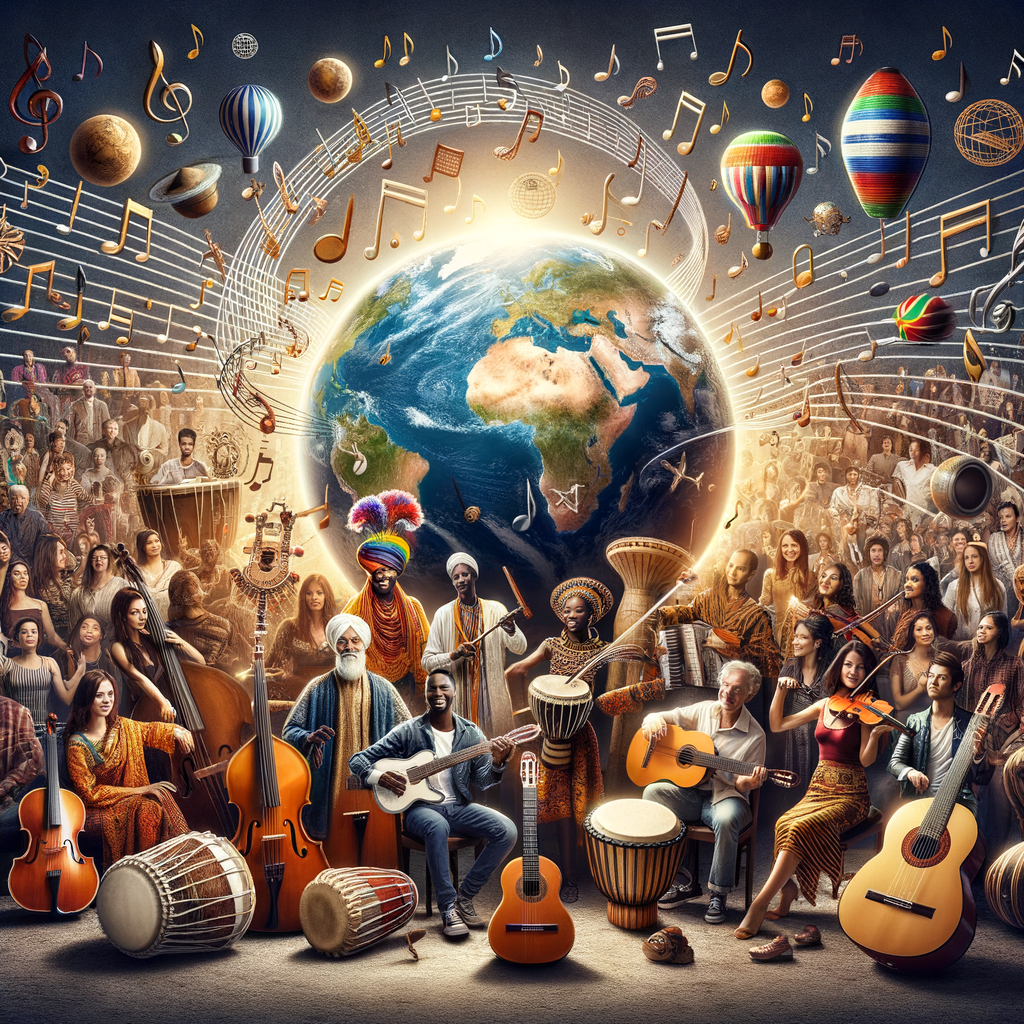Physical Address
304 North Cardinal St.
Dorchester Center, MA 02124
Physical Address
304 North Cardinal St.
Dorchester Center, MA 02124

Music has always been an integral part of human history, shaping societies and cultures in profound ways. It transcends boundaries, fosters connections, and influences our perceptions and behaviours. This article delves into the intricate relationship between music and culture, exploring how they influence each other.
Music plays a significant role in shaping cultural identity. It acts as a mirror of society, reflecting its values, beliefs, and traditions. For instance, Aboriginal music in Australia is deeply entrenched with spiritual beliefs and rituals that narrate the rich history of indigenous tribes. Similarly, reggae music from Jamaica encapsulates their struggle for freedom and equality.
Cultural identity through music is not only confined to geographical locations but also extends to various social groups. Punk rock emerged as a form of rebellion against mainstream societal norms during the 1970s in the UK and US. Its aggressive lyrics and anarchic fashion trends became a defining characteristic of the punk subculture.
Throughout history, music has been used as a powerful tool for social change. It has provided platforms for protest movements, raised awareness about social issues, and rallied communities together.
In the 1960s Civil Rights Movement in America, gospel songs like “We Shall Overcome” became anthems that united people in their fight against racial discrimination. More recently, hip-hop artists such as Kendrick Lamar use their lyrics to comment on police brutality and systemic racism.
Just as music shapes culture, culture too influences musical evolution. As societies evolve over time due to technological advancements or shifts in political landscapes – so does their music.
Technological advancements have significantly impacted the evolution of music. The invention of electronic instruments and synthesizers in the 20th century led to the birth of new genres like electronic dance music (EDM). Similarly, the advent of the internet and music streaming platforms has democratized music production and distribution, allowing independent artists to reach global audiences.
Music also facilitates cultural exchange. It allows different cultures to share and learn from each other’s musical traditions. For example, jazz – a genre that originated in African American communities – has been embraced worldwide, influencing various other music genres like rock n roll and pop.
The fusion of different musical styles often leads to the creation of new genres. An excellent example is Afrobeat, which combines traditional Yoruba music with American jazz and funk. This fusion not only creates unique sounds but also promotes cross-cultural understanding.
Music is an essential element in cultural celebrations worldwide. It sets the mood for festivities, brings people together, and enhances communal bonds. From Christmas carols during festive seasons to Aboriginal corroborees or Indian classical music during Diwali celebrations – each tune tells a story about its culture’s history, values, and beliefs.
Globalisation has both positive and negative impacts on music and culture. On one hand, it enables cultural exchange through music – promoting diversity and mutual understanding among different cultures. On the other hand, it can lead to cultural homogenization where dominant cultures overshadow local musical traditions.
In conclusion,
The power of music lies in its ability to evoke emotions, inspire change, bridge cultural gaps, shape identities, and unite people. Its influence on culture is profound and multifaceted. As we continue to explore new sounds and rhythms, music will undoubtedly remain a significant cultural marker, reflecting the ever-evolving tapestry of human society.